How To Learn To Sail: Ultimate Step-By-Step Guide
Getting into sailing can seem daunting. When I first got interested, I was completely overwhelmed by all the skills, conflicting information, - and man oh man - all those insider terms. If you don't know where to start, it can be very confusing.
How to learn to sail? When first starting out, you want to gain some experience on the water, learn basic sail trim and navigation, and learn the basic safety rules. You can learn this by taking online courses, and by taking sailing lessons. With the right approach, you could get up to speed in a couple of months and for as little as $500.
Learning from my own experience, I wanted to create a very easy-to-understand guide which walks you through everything you'll need to know and learn when first starting out. In this guide, I'll walk you through all the different aspects of sailing: what to expect (ie. costs), what skills you'll need and how to learn those, and what knowledge you'll need and where to find it.
Spoiler: it's cheaper and easier to learn than you would expect.
Over the last few years, I have written on a lot of different aspects of getting into sailing. Throughout this guide, I will regularly refer to specific articles where you can learn more on a specific topic. This guide is a jumping-off point you can use to quickly get up to speed, and dive in deeper on a particular topic whenever you feel like it.
As a result, it is a long article with lots of information; it may be too much to read all in one sitting. The upside is: it's all here. I recommend bookmarking this article and coming back to it every now and then and pick up where you've left. Let's get started.

On this page:
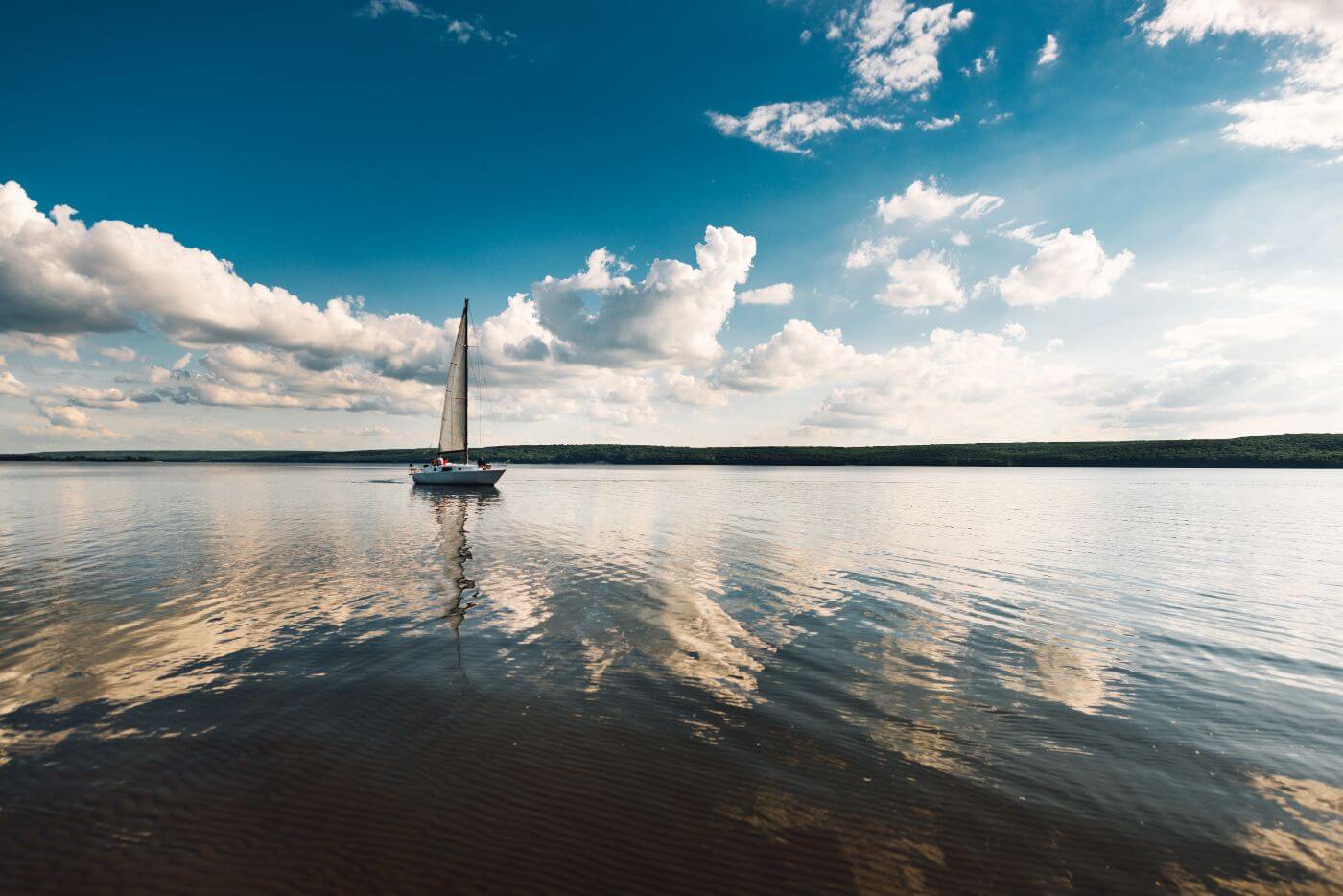
How To Get Into Sailing
Sailing is both a practical and theoretical skill. You really should gain real-life experience, but you can also learn a lot of essential skills by reading up on them. Let me quickly walk you through my recommendation of how to getting into sailing.
7 easy steps to get into sailing:
- Focus on learning the theory first, focus on practice second
- The essential sailing skills are sail trim, navigation, and boat safety
- Start out using (free) online resources or Sailaway simulator
- After that, gain experience by taking at least a couple of sailing lessons
- To cut cost, you could also crew for an experienced captain instead
- Get your boater's license if necessary
- Hire a boat at first to cut cost and figure out what you like
By first focusing on the theory, which you can mostly do using free resources (and this website), you save on those valuable sailing lessons.
I'll break down all of these steps later. But now, we first have to talk about some common misconceptions about sailing, what it costs, and how long it takes before you sail your first boat by yourself. It's sooner than you might think.
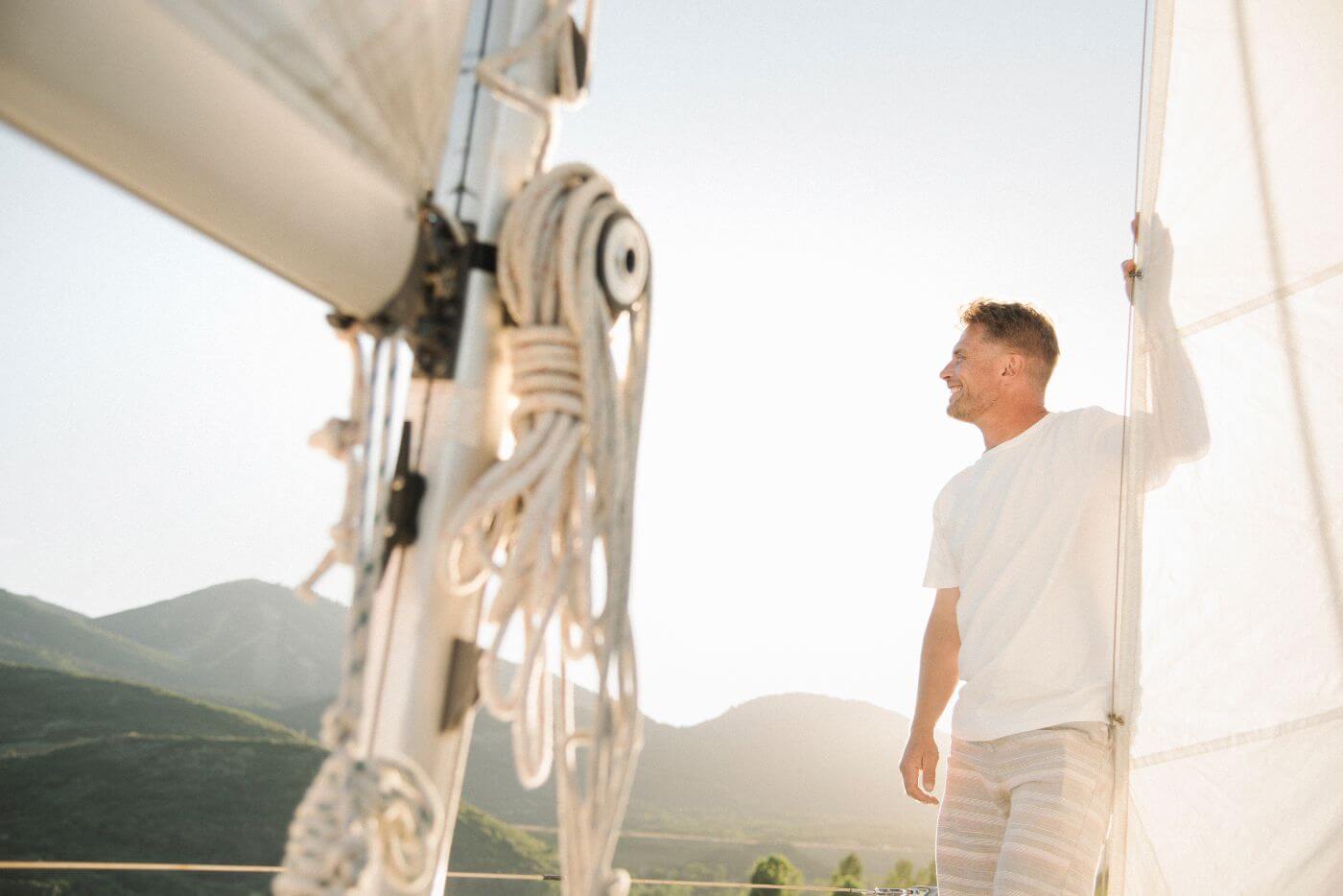
Myths that Could Be Holding you Back
Sailing is known to be an elite sport that costs way too much money. It's hard to learn, expensive to do, and you need all kinds of special knowledge - right? Well, all of those things can absolutely be true, if you want them to be. But sailing has always been one of the cheapest ways of transportation and can be quite easy to learn. I had a ton of those common misconceptions myself, and they were keeping me back. Maybe some of those are holding you back too?
Let me tell you some secrets that will probably change the way you think about the timeline of your sailing dream.
- Sailing can be an affordable hobby
- A realistic budget for beginner sailors is $100 - $300 per month
- If you want to, you can get a decent education for as little as $500
- A decent beginner sailboat can cost between $200 - $2,000
Sailing can be an affordable hobby
In order to sail, you need some things that potentially cost a lot of money:
- a sailboat (preferably a 52' superyacht, right?)
- sailing lessons (and probably tons of them, right?)
- speciality gear like navigation equipment (you can't use regular water bottles, right?)
I say potentially because it really doesn't have to be that way. Sailing can be a normal hobby for regular people that have normal budgets.
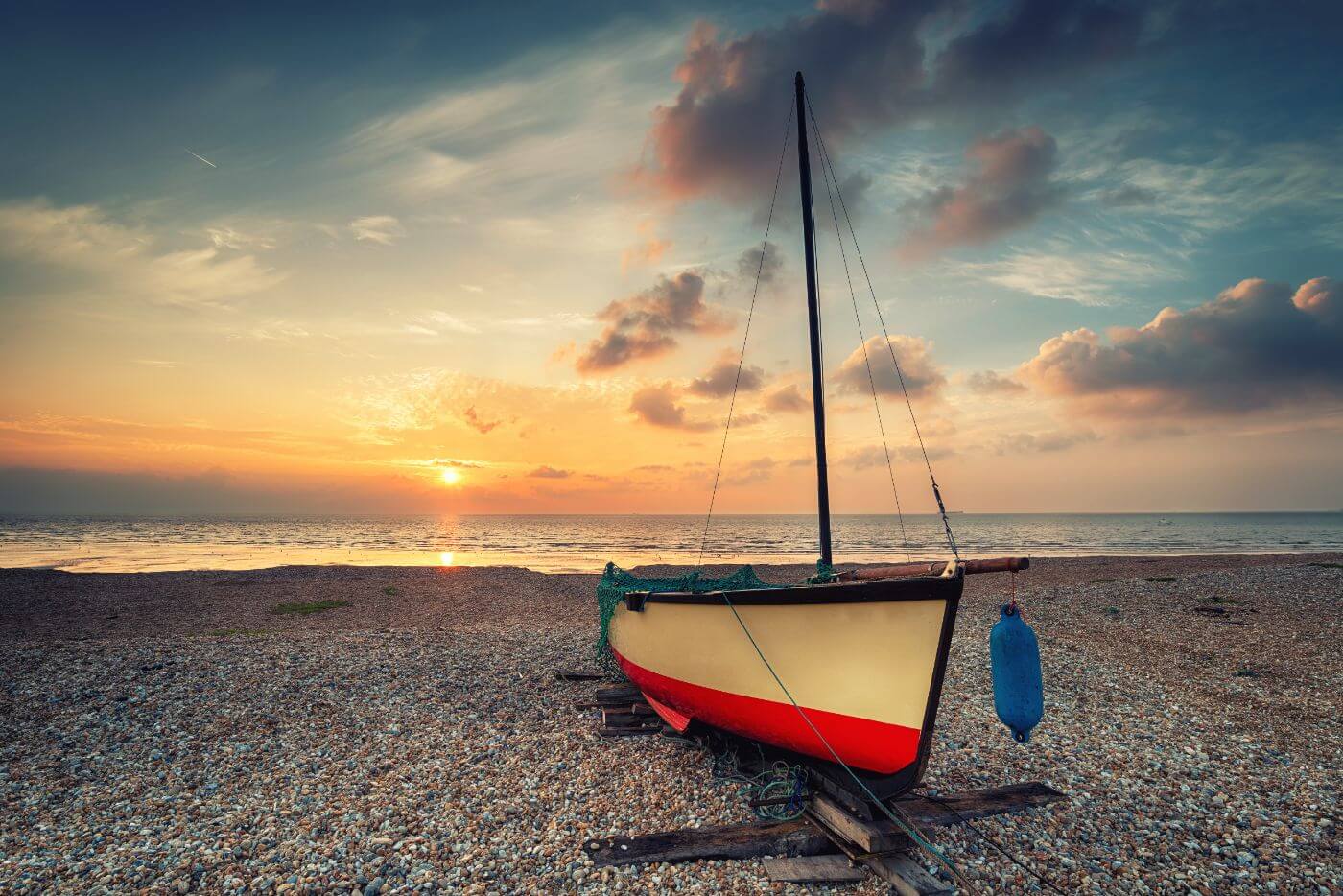
Sure, you can spend tons of money on gear and lessons, as with any hobby. You can get yourself special sailing water bottles that provide more optimal water disposal flow in marine environments. You can buy a world-cruising yacht. But let's be fair: you don't own a plane (if you do, call me), yet you are able to fly to nearly every place on Earth if you want to. If you prioritize, you actually don't need all that much gear ór lessons.
In most states and countries, you actually don't even need an official education in order to sail smaller boats. I do recommend getting some training in advance. But you can really get a super decent training and tons of experience on just a $500 budget.
Want to get into sailing on a budget? I've written a detailed guide on how to learn the most important sailing skills on less than $500. There are tips in there that cost absolutely nothing and are very good first steps.
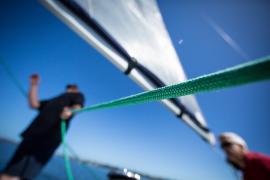
9 Ways to Learn to Sail for (Practically) Free
A realistic starting budget is $100 - $300
I've done research on the costs of all different aspects of sailing and I was surprised by the results. You could sail on any budget really, depending on how creative you want to get. $0 is possible but it takes work, patience, and luck. For most people, a realistic budget to get started is between $100 - $300 per month. That will allow you to hire a boat a couple of days per month, get some training, buy some gear, and eventually buy your first sailboat.
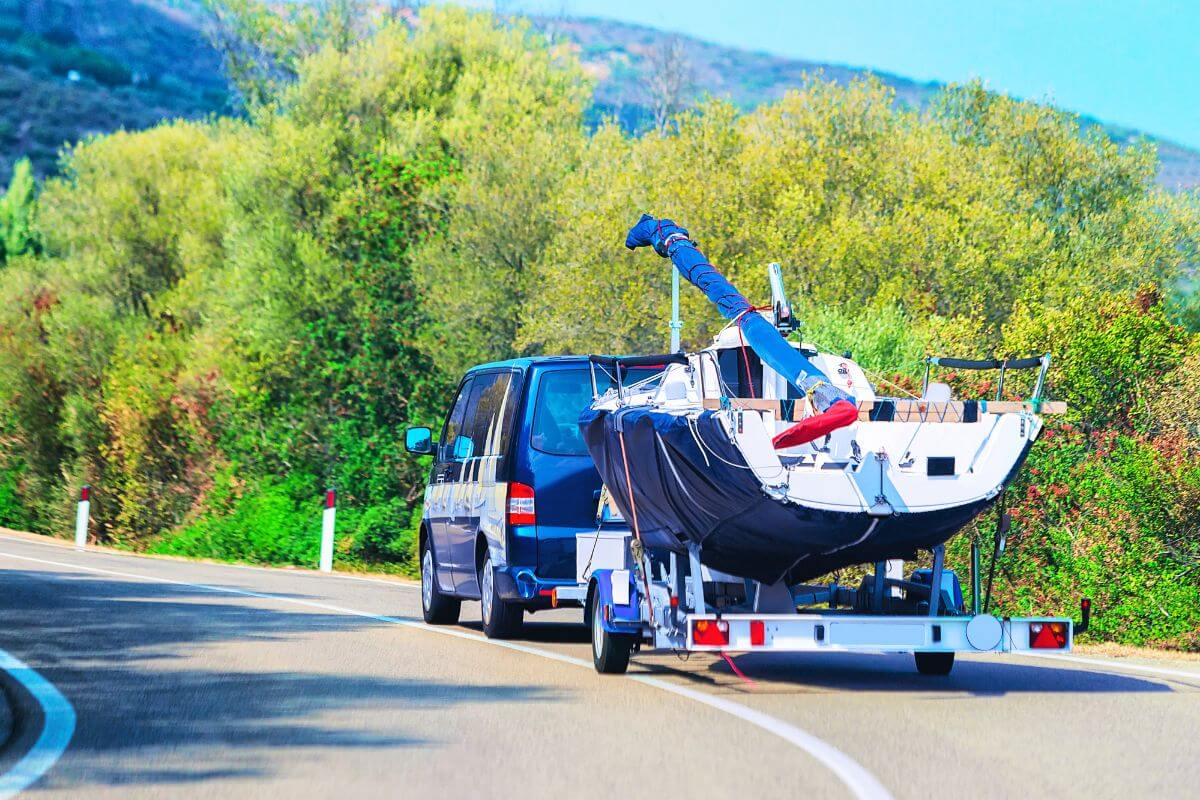
There are affordable beginner sailboats out there
Buying a boat will always cost money, but there are so many second-hand sailboats you can always find a decent deal, or even a free learning boat, as long as you don't immediately want to go out and get yourself a yacht.
In fact, you probably want to consider buying a very small beginner laser to start out. The smaller the boat, the faster you'll learn. Small, light sailboats give you faster and more precise feedback on what you do. And small lasers are pretty inexpensive. You can get good second-hand deals for just a couple of hundred bucks. This also means you can put them on a trailer and store them at home. Saves additional cost. Larger sailboats (22ft and up) get very expensive very quickly, though.

The Average Cost of Buying & Owning a Sailboat
I have compared thousands of sailboat prices, and the cost of ownership. In this guide, we'll go over every dollar it will cost to own a boat. If you are unsure what it costs to buy and own a boat (and what's possible on your budget), this is a great resource for you.
But there's more cash-saving good news: you don't necessarily need to own a boat to get started.
You don't need to own a boat to get started
Hiring a boat is pretty straightforward nowadays, and more and more private owners are renting out there boat for fair prices on platforms like Boatsetter (Airbnb for boats). So when first starting out, I recommend renting a sailboat for a couple of weekends first, which should get you a good feel for the whole thing.
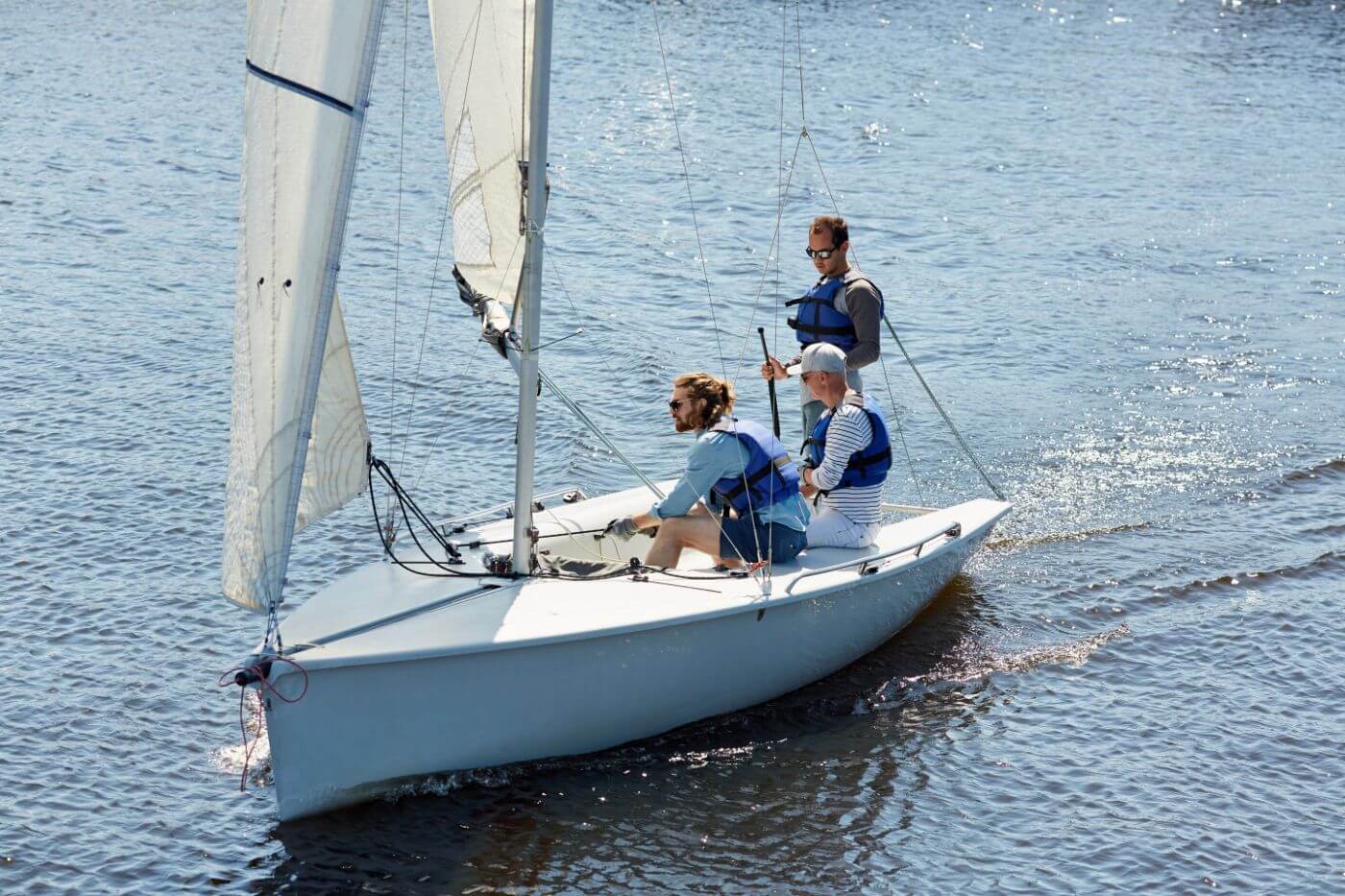
These boats are great for learning, as they give rapid feedback.
You can set sail within a couple of months
Learning to sail can take anywhere between 50 - 500 hours, depending on what level of skill you require. Coastal sailing and ocean passages require a lot more knowledge and experience. In contrast, you can learn to sail your recreational lake in light winds pretty quickly.
You can get started today
It's okay to not be the best sailor straight away. As with any skill worth learning, it's worth doing badly at first. As long as you don't get in anybody's way and stay safe, you can try and fail all you want. That's great because it means you can start today. You don't need hundreds of lessons before setting out on your own.
Some people like to pretend sailing is some mysterious superpower. Sure, doing something really well is always hard, and so is sailing really well. But in the end, we're just catching wind with a piece of cloth. Let's not make it harder than it is.
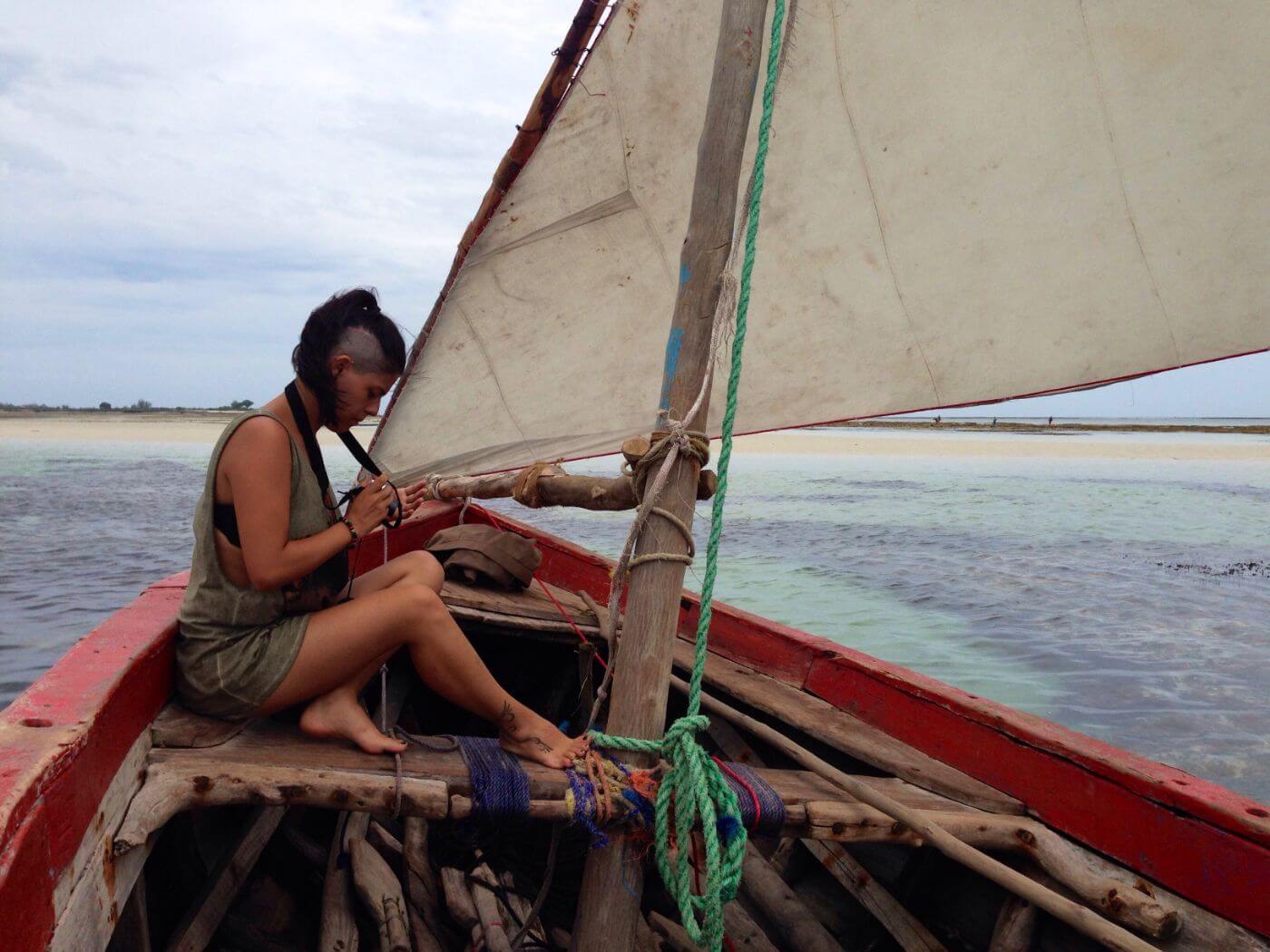
You probably don't even need a license
In some states, you don't need any licenses in order to sail your boat in inland waters. Most states only require you to take a short boater safety exam, which you can do online for roughly $50. After that, you're officially good to go. If you don't require to get a safety license, I still recommend getting one. It's so cheap and easy to get, and it's better to be safe than sorry.
I do recommend getting some basic training before hitting the waters, as operating a boat can be nerve-racking if you're new, and it's just safer if you know the basic rules of the road. More on how to do that later.
For coastal and international waters, you do need multiple licenses, which will take money and time to pass. But when first starting out, you probably want to gain a lot of experience on small bodies of water first.

How To Get Started
Okay, so apparently you don't need a huge budget, you don't need dozens of licenses, and you don't need hundreds of lessons before sailing your first boat. You can start today, and nothing's holding you back - you probably get that by now. Except, something is holding you back. Where the heck do you start?
Well, let's start with learning the essential skills before doing anything else.
I have written a very simple approach to learn to sail for practically free (I have linked to it before). Besides being cheap, it's also a good overview of how to go about learning these essential skills. Here's the gist of it:
My 5-step bootstrap plan for new sailors
1. Lay the theoretic groundwork
- Start with free online introductory courses
- Read up on the essential knowledge on Improve Sailing
- Spend time playing Sailaway Sailing Simulator
- Read my recommendation for free courses here.
2. Test where you stand
Now that you have some theoretic knowledge, take two sailing lessons to test where you stand. Don't go overboard on lessons, just get a feel for how quick you learn and how much you know (or don't) already. That way, you don't break the bank and can change your plan accordingly.
3. Gain experience
Next, we want to make sure we have enough experience to stay safe and confident.
- If you are a quick learner, take a 1 or 2-day sailing course. This is a bit more expensive, but it pays off to spend a longer time with someone experienced.
- If you feel like you need more help at first, I recommend trying to become a ship's mate first. This is free and you learn a lot quickly. You can be a ship's mate for a day, a week, or an entire season.

4. Optional: get your license
If you need any licenses, be sure to get them now. In most states, you just need to take a basic boater's safety exam.
5. Set sail
Once you have the basic theoretic knowledge and practical experience, you can finally set sail on your own. I suggest hiring (chartering) a boat at first. This doesn't have to be expensive at all and is a great way to learn what you like and dislike.
General tips when setting sail for the first time
- Start with small boats (under 24') for better feedback
- Sail with light winds of 7 knots or less
- Start small and work your way up
- Safety is always your priority, speed comes second
Skills You Need to Learn to Sail
Let's take a look at the precise skills you need to develop in order to become a good sailor. Below is a quick overview of essential skills and important information, and I'll link to which articles will help you out.
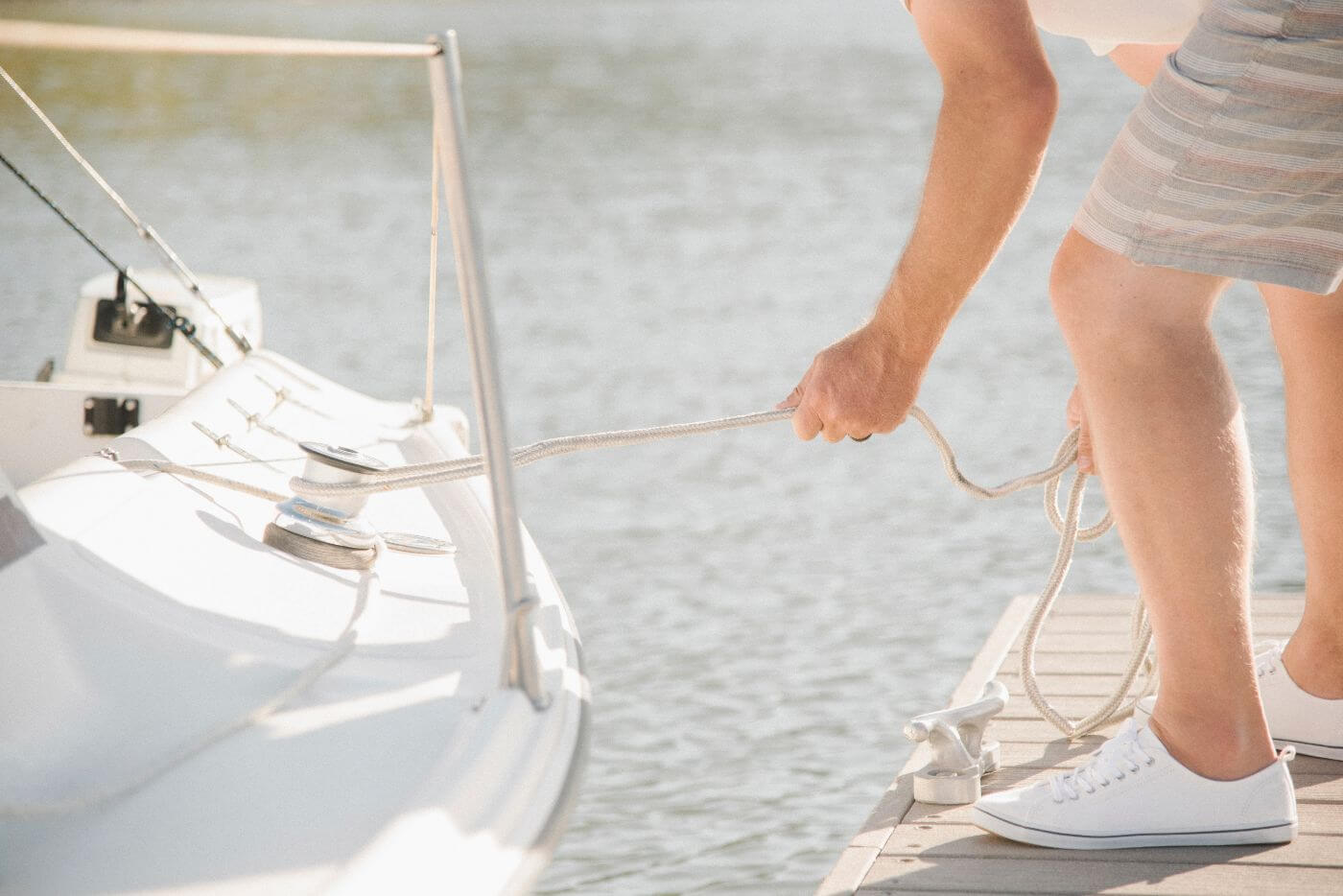
Essential sailing skills
- Sail trim
- Marine navigation
- Weather interpretation
- Anchoring
- Docking
If you learn the fundamentals of these five skills, you should be able to stay safe while navigating through most situations. We'll walk through each of those skills, what it involves, and how to learn it below.
Other useful skills that are not essential at first are general boat maintenance, diagnosing electrical issues, and maintaining your boat's engine.
How to learn basic sailing skills
I recommend reading up on basic sailing skills. We have created a special page that shows you what articles we recommend when first starting out. Reading up on sailing skills might seem unnesseccary, but believe me, it really helps to boost your confidence if you have read about all those moving parts ahead of time. It will also save you precious lesson time.
NauticEd offers Basic Sail Trim as one of their free introductory courses, so I recommend taking that course, as well as playing Sailaway, which will really prepare you for trimming sails in real life.
Here's a great beginner sail trim video:
The most important way to learn basic sailing skills, of course, is going out and practising them on the water. I would want to have at least a basic grasp of sail trim and navigation before sailing single-handed (alone).
How to learn marine navigation
I recently wrote a complete guide on how to learn marine navigation. I suggest you start there - it's a very comprehensive guide and great for beginners. I specifically wrote it for people who don't know where to start. In it, I explain the fundamentals and link out to more in-depth articles, so you can explore on your own. Marine navigation is a skill you can train at home especially well.
How to learn anchoring
This is more of a practical skill, but I still recommend to read up on it first (it doesn't cost you anything). William has written a couple of solid articles on anchoring:
- 9 Easy Expert Tips for Anchoring a Boat Near Shore
- How Much Anchor Chain Should You Let Out When Anchoring?
- Can I Moor & Anchor My Boat Anywhere?
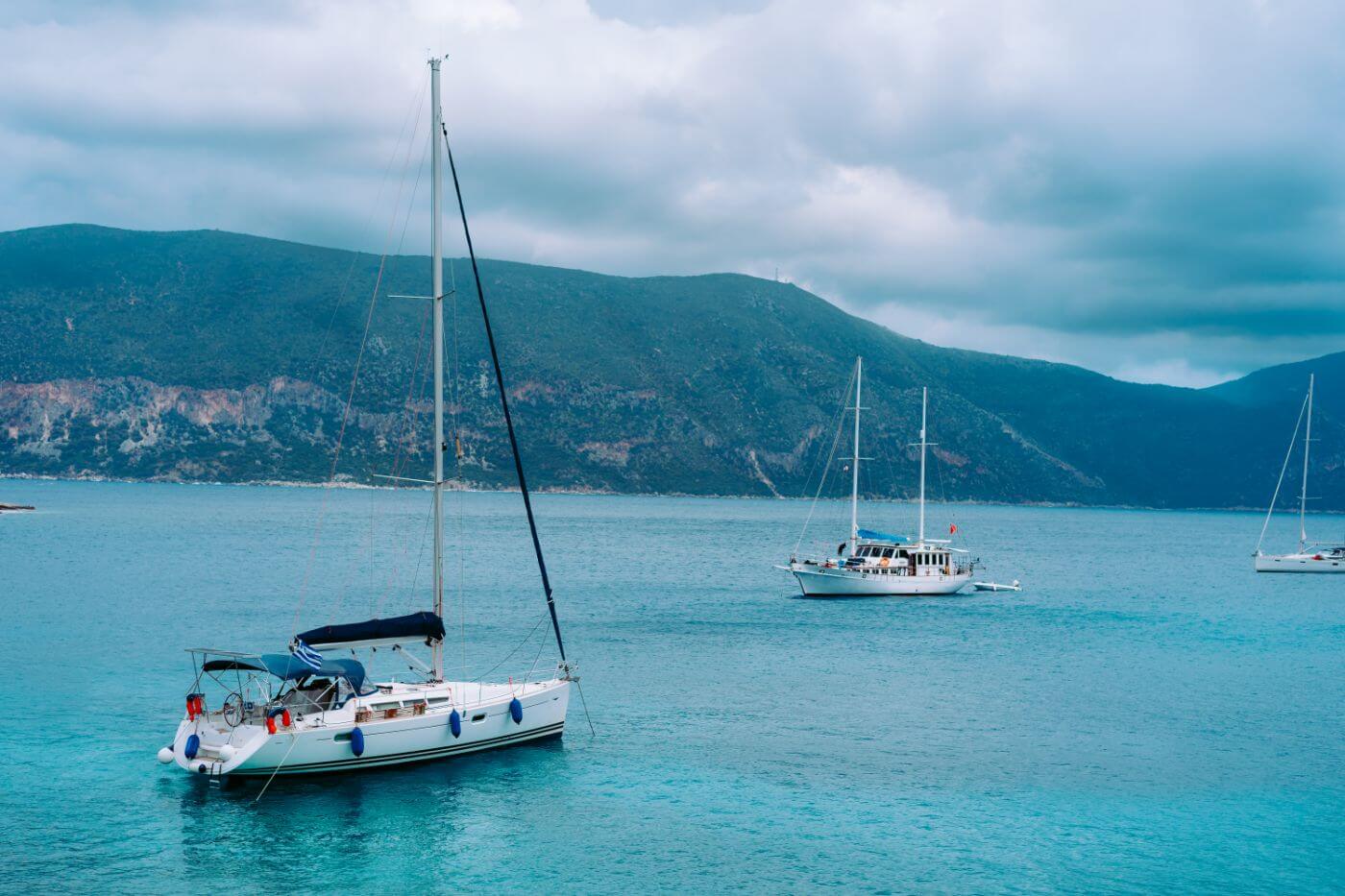
Essential knowledge
Even though sailing is a very hands-on skill, you do need some theoretical knowledge as well.
- Boat Safety Standards
- Rules of the Road - essential in avoiding collisions and dangerous situations
This information is included in one of the free introductory courses offered by NauticEd, and I believe ASA also has a free course on collision rules.
Useful knowledge
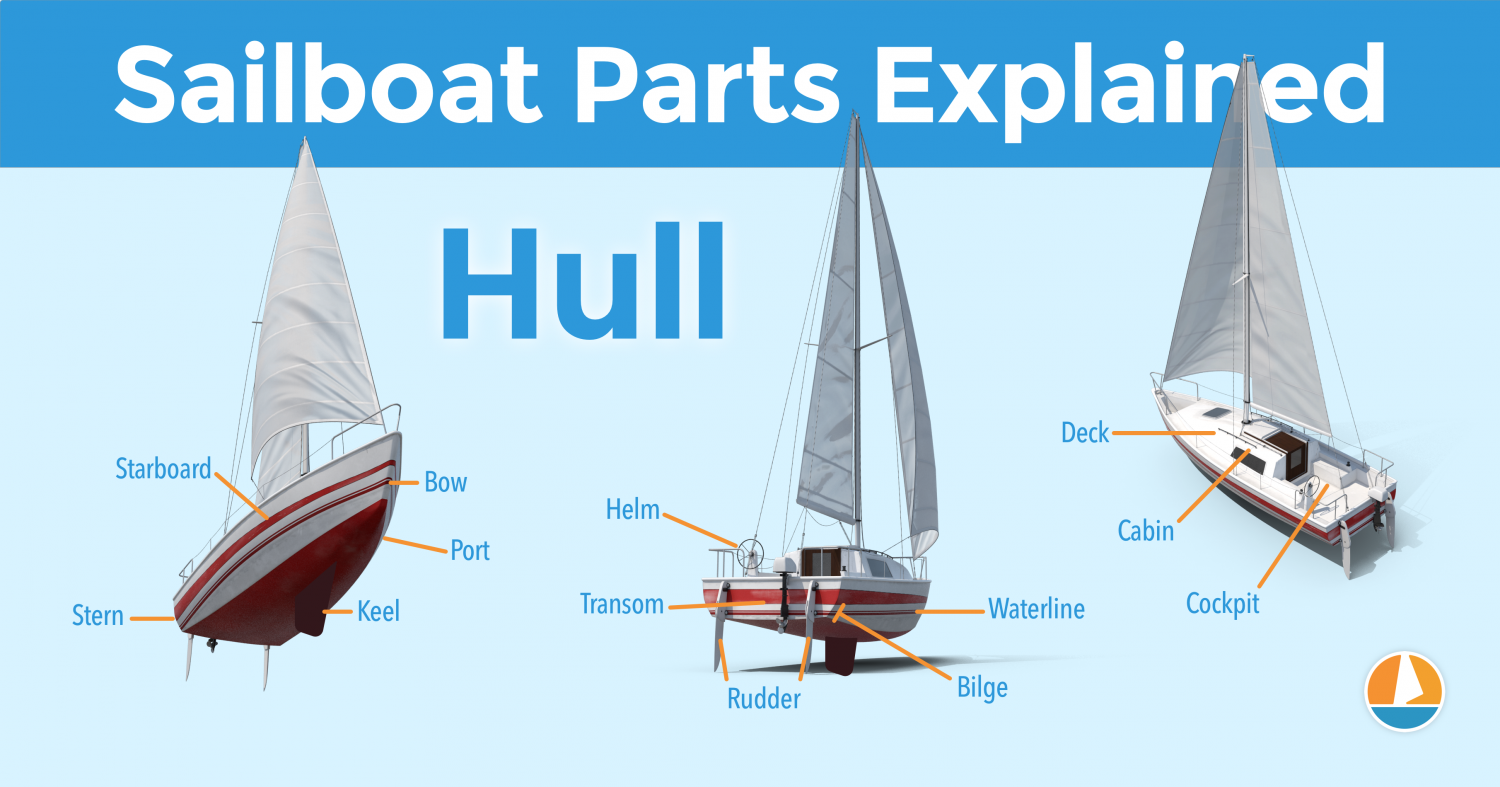
Besides this essential information, there are also things that are simply handy to know. It really pays to invest some time into learning the most important sailing terms. I recommend you learn the following at the least:
- Basic parts of sailboats - has great diagrams
- Basic sail names - illustrated guide with examples
- Most common sailing terms - extensive database
Understanding the basic names of things comes in handy when shouting orders at your crew (or being shouted at!), and avoiding any confusion. However, you can definitely sail a boat without knowing the name of everything on it.
Things You'll Need
There is some basic gear you probably want to have as a first-time sailor. Luckily, there isn't a lot of speciality stuff you have to have when renting your first sailboat.
- suitable shoes & clothing
- basic navigation tools
- optional: plotting tools
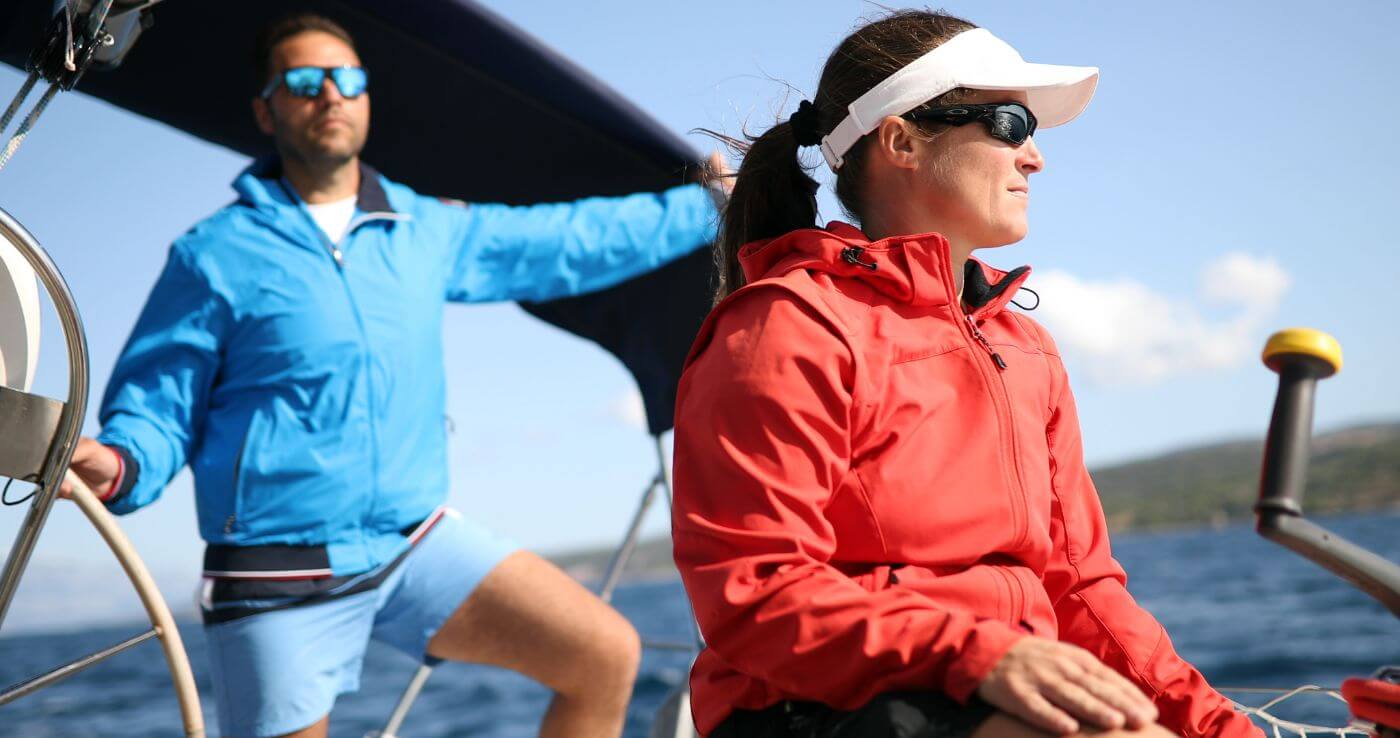
Clothing
Suitable shoes
If you're just going out sailing for some odd days here and there, you only need suitable shoes to wear onboard. Or you could not wear any shoes at all, which is cheaper obviously. It can pay off to invest in something to protect your pinky toe.
Sailing gloves
If you're planning on sailing more often, or longer days, you might want to consider getting a good pair of sailing gloves. Those will really help protect your hands from fatigue, blisters, and rope burn.
A hat
I highly recommend getting some kind of headwear. Make sure it has a strap or is a tight fit. Protecting yourself from the sun is important on the water. You get sunburn quickly.
Suitable clothing
You can wear regular clothing. Make sure to bring multiple layers, as temperatures on the water can change quickly. If you have clothes that are lightweight, comfortable, dry quickly, and optionally break wind, that's perfect. You could of course buy special sailing jackets, but these tend to be pricey, and you only really need them if you're on the water a lot.
Here's an expert tip: always bring dry clothes and wrap them in a plastic bag.
If you're looking for good quality sailing gear, I have articles on gear I like. You can check them out on the recommended gear section of this site. It has all the sailing gear I love most.
Navigation tools
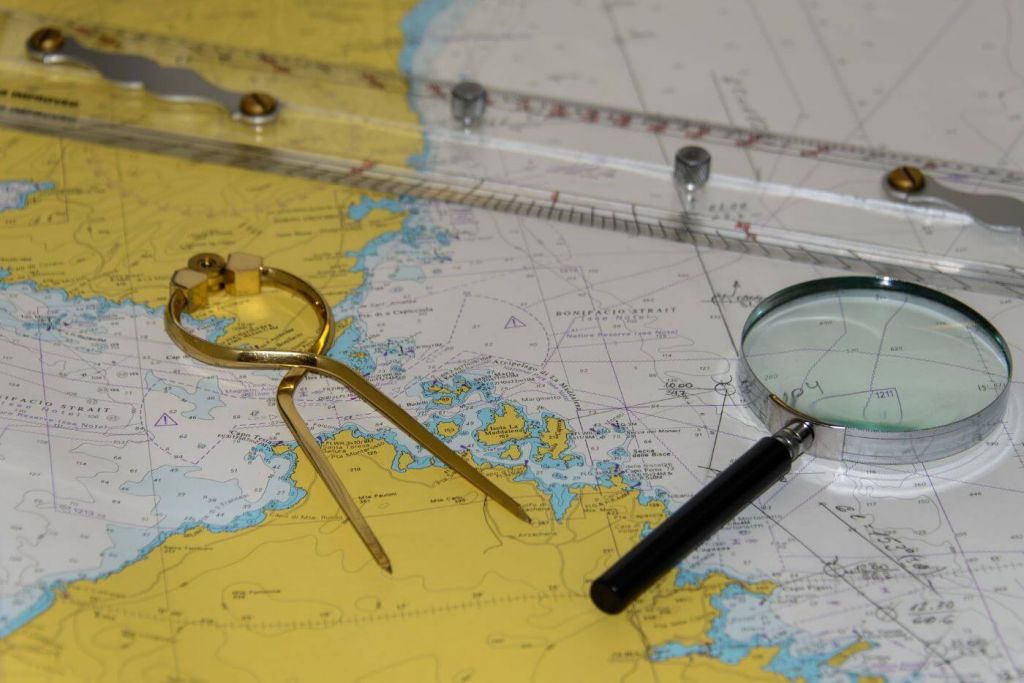
When renting a boat, you want to bring some basic navigational tools:
- handheld magnetic compass
- nautical charts
Most people won't need plotting tools at first, but if you're planning on sailing longer legs, you might want to get them:
- divider
- parallel rulers
You might also need to show your skipper's license, or at least your boater's safety license.
In Conclusion
Getting into sailing doesn't have to be complex at all. If you bookmark this article, you can get back to it (and the resources I link out to) and work your way through them in your own time. Taking your time to learn the fundamentals right first will greatly speed up your practical learning experience.
While sailing is a practical skill, and more traditional skippers will argue that you can't learn it on paper, I disagree. There is a lot of information that is especially suited to learn online or practice at home. By doing so, you'll feel more confident once you set foot on board. However, you probably shouldn't postpone bolstering your practical experience either. You want to see where you stand as quickly as possible. A lot of people put it off indefinitely, and if there's one thing true about the internet - actually, two -, it is this:
- You can keep reading indefinitely.
- It can't replace the real thing.
Instead, use it as a helpful resource to speed up the process and cut cost. It's a great place to do homework. But now, it's time to step aboard - good luck, and smooth sailing!
Did you find the answer to your specific question?
👍 13 👎 1
Comments
Ben A.
A warm hello
Need employees for $10?
At OBK, we specialize in providing top-notch back-office support at just $10 per hour. Our team of experienced professionals can handle tasks like:
Data entry and reconciliation
Social Media Marketing
Cold Calling
Customer service and order processing
Social media management and content creation
Administrative support and scheduling
Technical troubleshooting, and much more!
By outsourcing your back-office work to us, you can focus on growing your business while saving both time and money.
Interested in learning more? Let’s set up a quick call or meeting to discuss how we can tailor our services to meet your needs.
Looking forward to hearing from you!
Learn More: Outsource-bookkeeper.com
Best regards,
Ben A.
ben@outsource-bookkeeper.com
877-670-3589
Irvine CA, 92602
Leave a comment